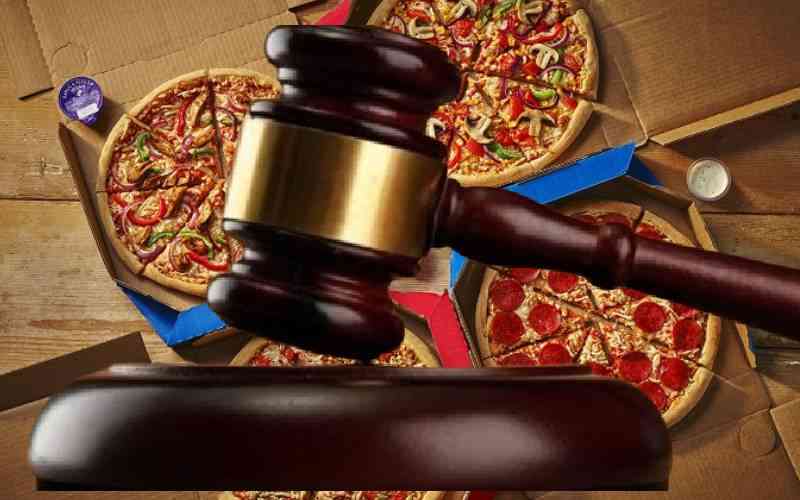By Michael Waikenda
Bensouda issued a press statement in which she made clear she was going to rely on evidence from hidden witnesses against Uhuru
It is becoming increasingly clear that Deputy Prime Minister Uhuru Kenyatta and Eldoret North MP William Ruto do not stand a chance of a fair trial at the International Criminal Court (ICC) over the crimes-against-humanity charges brought against them. With sickening regularity in recent weeks and months, key figures involved in the prosecution and in the so-called continuing mediation effort are making reckless pronouncements designed to prejudice these cases.
The ground is clearly being expertly prepared for a massive miscarriage of justice and the first international show trial of the 21st century. Indeed, last week, Uhuru significantly observed, “Even suspects have their own rights, in their own nations.
From the time we were named, we said we were determined to follow due process to clear our names, but this does not mean we should be denied our rights”.
Both the ICC Chief Prosecutor Fatou Bensouda, and the head of the Kenyan post-election violence mediation process, former UN Secretary General Kofi Annan have made remarks that are explicitly intended to stand in the way of Uhuru and Ruto’s ultimate political ambitions. And both have brazenly denied that they were interfering in Kenyan electoral politics. The double speak is astonishing.
A couple of weeks ago, soon after a week-long visit to Kenya, Bensouda issued a press statement in which she made clear for the first time the extent to which she was going to rely on evidence adduced by hidden witnesses against Uhuru, who also happened to have been self-confessed former senior members of Mungiki.
Such ‘evidence’ and such ‘witnesses’ are the stuff that shows trials in the totalitarian states of the 20th century used to be made of. Even Uhuru’s worst enemies inside Kenya can see that the ICC really has it in for the DPM.
And then, in remarks that somehow coincided with the announcement of Uhuru and Ruto’s joint ticket for the 2013 presidential race, Annan speaking on BBC, told Kenyans that it is “not in the interest of the country” for the electorate to elect a leader “who will not be able to freely interact with the rest of the world, including travelling to some countries”. When the BBC reporter urged Annan to state whether he was in fact urging Kenyans not to elect Uhuru and Ruto, he denied this and snapped “do not put words in my mouth”.
The former UN chief’s doublethink and double-speak is frightening because if this is how he can behave on-air speaking to a global broadcaster like the BBC, how does he behave behind closed doors?
The fiction about Kenya’s international isolation being peddled by the likes of Annan in the event of Uhuru and Ruto being elected is nonsense. For completely different reasons, Mzee Jomo Kenyatta did not travel abroad after 1964 for the rest of his life, yet Kenya enjoyed a profile that was higher than anything that came before or since.
A competent, high profile head of the Foreign Office (the Foreign Secretary), the rest of the Cabinet outside the presidency, and the Brand Kenya Board launching a particularly creative nation-branding campaign is all we would need.
Enough of mind games: The ICC is clearly out to bring down its biggest prey yet – two top political leaders from a functioning, not a failed, state. This is an act of desperation and a clutching after continuing relevance. But it is not justice.
In fact, it is the ICC itself that runs the highest risk of isolation and international opprobrium in 2013 should the perception gain ground inside Kenya, and elsewhere in Africa, that a free and fair trial is just not possible at The Hague for these two national leaders.
It is a perception that, with their recklessly partisan periodic utterances, operatives like Bensouda and Annan are doing their damndest to spread and entrench.
Stay informed. Subscribe to our newsletter
Writer is TNA Director of Communications
 The Standard Group Plc is a
multi-media organization with investments in media platforms spanning newspaper
print operations, television, radio broadcasting, digital and online services. The
Standard Group is recognized as a leading multi-media house in Kenya with a key
influence in matters of national and international interest.
The Standard Group Plc is a
multi-media organization with investments in media platforms spanning newspaper
print operations, television, radio broadcasting, digital and online services. The
Standard Group is recognized as a leading multi-media house in Kenya with a key
influence in matters of national and international interest.
 The Standard Group Plc is a
multi-media organization with investments in media platforms spanning newspaper
print operations, television, radio broadcasting, digital and online services. The
Standard Group is recognized as a leading multi-media house in Kenya with a key
influence in matters of national and international interest.
The Standard Group Plc is a
multi-media organization with investments in media platforms spanning newspaper
print operations, television, radio broadcasting, digital and online services. The
Standard Group is recognized as a leading multi-media house in Kenya with a key
influence in matters of national and international interest.









